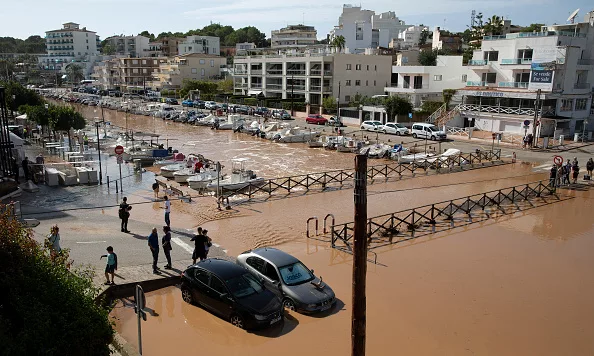
(CAIRO) — By 2025, Egypt is projected to be a water-scarce nation as climate change and a major dam threaten its source of survival.
Egypt has long been called the “gift of the Nile” as it has historically depended on the river for survival. But over the next two years, experts say Egyptians could approach a state of “absolute” water scarcity.
Climate change, population growth and a regional fight for water resources are all contributing to the risk of water imbalance, experts say.
About 90% of Egypt’s population lives along the Nile River, with the waterway providing nearly all Egyptians with drinking water. The country is facing an annual water deficit and is estimated to be categorized as water scarce by 2025, according to the United Nations.
Rising sea levels are prompting saltwater intrusions that are not only affecting water supply but also spoiling agricultural farmland, according to water management experts.
“The sea is rising in the Mediterranean Sea, and the land is sinking in the Nile Delta. And as a result, the Nile delta becomes the second most susceptible place on earth to climate change impacts in terms of sea level rise,” says Karim Elgendy, an associate fellow at the Chatham Institute think tank.
Egypt is not the only country that depends on the river — it’s shared by 11 African countries. The completion of a mega-dam on the river poses another significant threat to the water supply in the region, critics of the project say.
The Grand Ethiopian Renaissance Dam (GERD) has been a part of a contentious decade-long dispute involving Egypt, Sudan and Ethiopia. The hydro-electricity dam is now nearly complete and has begun filling to provide direly needed energy supply to Ethiopia. The GERD is expected to make the country a major power exporter in the region.
“Folks have never actually went to war just because of water. Now, we could be at the point in history where that changes,” says Mohammed Mahmoud, a director of the Climate and Water Program at the Middle East Institute.
In 2019, Ethiopian Prime Minister Abiy Ahmed said his country should be ready for a war with Egypt over the dispute. In 2021, Egypt and Sudan held joint military exercises to showcase security ties between the two countries in response to the ongoing conflict, the Associated Press reported.
The dam’s impact on the water supply depends on how fast it’s filled, according to Elgendy. “It will determine the impact of this disruption and the reduction to the volumes of water that goes to Egypt,” he said.
Egypt’s population of 109 million is projected to grow significantly in decades, further straining the demand for water in the region.
“There’ll be an imbalance in terms of less water supply and inflated demand,” said Mahmoud. “Both because of climate change, and also because of socio economic conditions and population growth.”
Ethiopian officials have insisted that the dam will not impede on both Sudan and Egypt’s water supply. Negotiations over an agreement between the three nations over the filling of the dam have stalled recently.
“I believe there will come a point where some level of cooperation has to happen, because there is no other alternative,” says Mahmoud.
Copyright © 2023, ABC Audio. All rights reserved.





